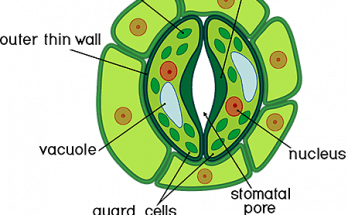
Diagram of Stomata
Neatly Labelled Easy to Draw Stomata Diagram with detailed explanation for Class 10 . Stomata Diagram and Open and Closed Stomata Diagram Labelled and Explained .
Diagram of Stomata Read MoreCBSE Class Notes Online – Classnotes123
CBSE Class Notes, Worksheets, Question Answers, Diagrams , Definitions , Diffrence between , Maths Concepts, Science Facts Online – Classnotes123
CBSE Board , Science Question Answers , NCERT Syllabus

Neatly Labelled Easy to Draw Stomata Diagram with detailed explanation for Class 10 . Stomata Diagram and Open and Closed Stomata Diagram Labelled and Explained .
Diagram of Stomata Read More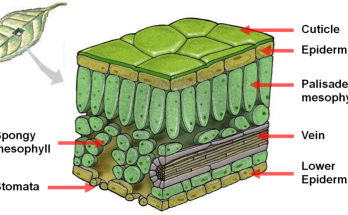
Cross Section of Leaf Explained with neatly labelled Diagrams , explanation of all the layers of leaf , parts and their functions for class 10th
Cross Section of Leaf Class 10 Read MoreHeart Diagram – neatly labelled easy to draw diagram of Human Heart – with decription of each label for class 10 board exams and school assignments
Human Heart Diagram Class 10th Read More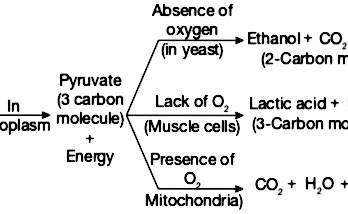
9 Important Diffrences Between Aerobic and Anaerobic Respiration explained with examples and anaerobic and Aerobic Equations
Differentiate Between Aerobic and Anaerobic Respiration Read MoreNeatly Labelled Easy to Draw Human Alimentary Canal Diagram for class 10thwith the explanation of each part of human digestive system
Human Alimentary Canal Diagram Class 10 Read More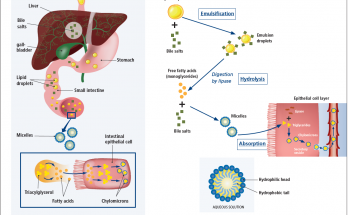
Emulsification of fats is a significant process in our body, in which large fat globules are broken down into small, evenly distributed fat particles by the action of the bile salts present in bile juice. This process increases the efficiency of fat-digesting enzymes, aids in the digestion and absorption of fats, and provides a larger surface area for enzymes to act upon. Overall, the significance of emulsification is crucial for proper fat digestion and absorption in the body.
What is the Significance of Emulsification of Fats Read More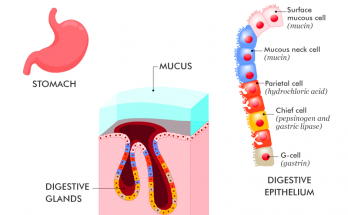
Insufficient secretion of mucus by the gastric glands disrupts the balance in the stomach. Without mucus, the stomach lining becomes vulnerable to acid and enzyme damage, leading to erosion, painful ulcers and increased acidity. Digestive complications such as chronic acid reflux, gastritis and risk of infection can occur. Mucus secretion plays a crucial role in protecting the stomach and maintaining digestive health.
What will happen if Mucus is not Secreted by the Gastric Glands Read More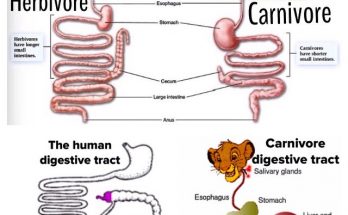
Herbivores and omnivores have longer digestive tracts than carnivores. Herbivores consume fibre-rich plants with cellulose, requiring extended digestion time. A longer small intestine allows herbivores to fully break down cellulose, aided by bacteria. Carnivores lack cellulase enzymes, resulting in a shorter small intestine. The difference in tract length arises from dietary needs and cellulose digestion capabilities.
Why do Herbivores have Longer Small Intestine than Carnivores Read More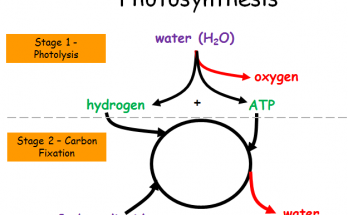
3 Major Steps of Photosynthesis
Absorption
Conversion
Reduction
Steps of Photosynthesis in Light Dependent and Light Independent Phase (Calvin Cycle) …
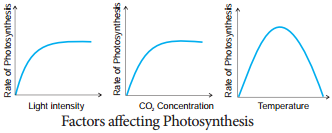
Photosynthesis is crucial for plant growth. Factors like light intensity, CO2 concentration, temperature, water, chlorophyll, protoplasm, and leaf structure affect and determine efficiency. Light intensity directly influences photosynthesis, while CO2 concentration initially enhances it. Temperature affects enzymes. Water scarcity hampers CO2 intake. Chlorophyll loss impairs energy absorption, protoplasm affects hydration and carbohydrates, and leaf structure determines light and CO2 entry.
7 IMPORTANT FACTORS AFFECTING PHOTOSYNTHESIS Read More